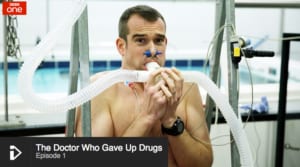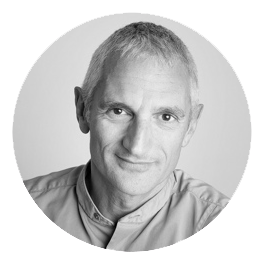Maintaining a Balanced Lifestyle
A balanced lifestyle is something we hear a lot these days. Balanced diet, work/life balance, the list goes on. But are we sometimes guilty of just ticking off the easy bits?
As an Osteopath of more than 25 years’ experience, Robin Kiashek can testify to the benefits of maintaining a healthy weight, eating a good diet that encompasses all the necessary food groups and taking regular exercise
But balance is also about being still as well as busy. And about our minds and not just our bodies. And these are the elements of a balanced lifestyle that Robin feels can get forgotten.
Elements of a healthy lifestyle
Robin recently watched ahttps://www.ornish.com/ fascinating TED talk by Dean Ornish. Dean is an American physician and author whose approach to treating heart disease has generated significant debate in the medical community and attracted a popular following. Essentially, he showed through a randomised clinical trial that coronary artery disease could be reversed. And he’s now extending his research to see if it can benefit Alzheimer’s patients.
The basis of his approach is four pronged:
- Diet – low in fat and predominantly plant based
- Exercise – at least 20 minutes of daily aerobic exercise
- Stress reduction – allocating time each day to relaxation including stretching and breathing
- Social support – one hour a week that might include spending more time with friends and family, group support, altruism, or service.
Not bad advice for us all. But, in general, it’s interesting how we tend to focus on the top two and how they are more valued by society than stress reduction and social support.
Robin says: “As a society, we are quick to judge when people don’t exercise or eat healthily. But much less judgemental when they focus on diet and exercise to excess – which can be just as damaging. I see patients with injuries that need rest to heal but they feel unable to take time out from exercise because they are using it as an outlet to manage their stress. When yoga or meditation might be much more effective tools for relaxation.”
All four legs required for balance!
Clearly there are practical (and potentially financial) implications to reorganising your life in this way. Lifestyles are busy already and with the current cost of living crisis the focus may be on paying the bills and putting food on the table. But, as a wise person once said, if you change nothing then nothing changes.
The final word goes to Robin: “In my clinics, I often see the results of a life lived off balance. Stress and injury are common results. So much is written about the value of good nutrition and exercise, and it would be so nice to see equal consideration being given to stress reduction and social support. They currently seem to be the poor relations in the world of balance. Which is a shame as they are the other two legs to the chair. And we all know what happens to a chair with just two legs!!”
How Can an Osteopath Help?
If you have an injury or are in pain and would be interested in a holistic approach to your recovery, then why not get in touch?

 Episode one is the first of a two-part social experiment in which Doctor Chris van Tulleken takes over part of a GP surgery and stops patients’ prescription pills. Here is a link to the program, which can be found on BBC iPlayer:
Episode one is the first of a two-part social experiment in which Doctor Chris van Tulleken takes over part of a GP surgery and stops patients’ prescription pills. Here is a link to the program, which can be found on BBC iPlayer:  Twenty years later, Doctor Tulleken’s fascinating two-part program illustrates how people suffering with, what he would describe as lifestyle illnesses can gradually begin to be weaned off their medication (with their GPs guidance); these patients suffer from a variety of different conditions including long-term chronic lower back pain, depression and hypertension, to name a few.
Twenty years later, Doctor Tulleken’s fascinating two-part program illustrates how people suffering with, what he would describe as lifestyle illnesses can gradually begin to be weaned off their medication (with their GPs guidance); these patients suffer from a variety of different conditions including long-term chronic lower back pain, depression and hypertension, to name a few.